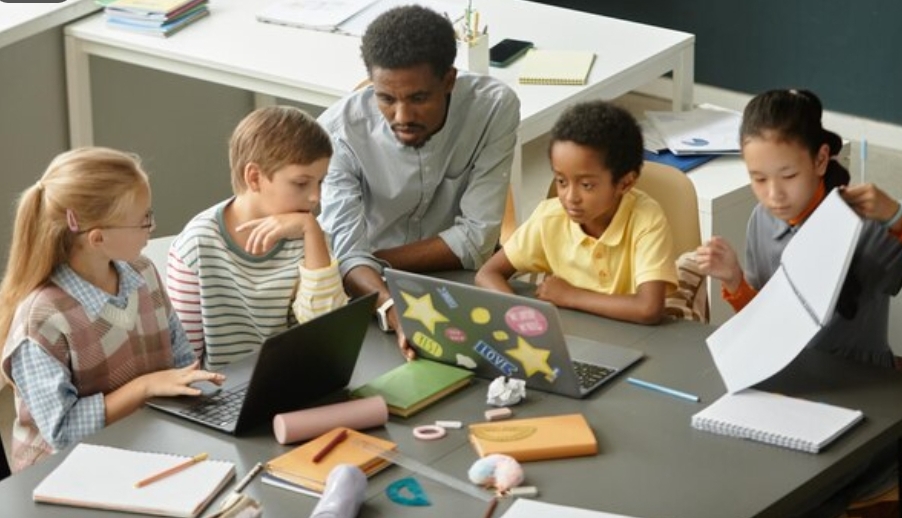
Literature, far from being a relic of the past, continues to play a vital role in shaping well-rounded individuals in the dynamic world of education. In a time where digital skills development takes center stage, stories offer a timeless dance with learning, fostering essential skills that transcend the classroom and empower students for the digital age. Let’s explore the enduring impact of literature on education:
1. Empathy Avenue: A Walk in Another’s Shoes
Great literature opens a window into diverse worlds and experiences. We walk alongside characters through triumphs and tribulations, gaining a deeper understanding of human emotions and motivations. This journey fosters empathy, a crucial digital skill for navigating the complexities of online interactions. In a world where friendships and collaborations can blossom virtually, literature teaches us to connect with people from all backgrounds, fostering positive and meaningful relationships across the digital divide.
2. Curiosity Lane: Igniting a Thirst for Knowledge
A captivating story has the power to ignite a spark of curiosity, a burning desire to explore and delve deeper. Imagine being transported to a fantastical realm and suddenly finding yourself researching medieval weaponry, or devouring historical fiction that sparks an interest in ancient civilizations. This is the magic of literature – it fuels curiosity, a fundamental tool for digital skills development. As students become engrossed in narratives, they develop a thirst for knowledge that extends far beyond textbooks. This insatiable curiosity fuels their digital skills, driving them to research online, evaluate information critically, and venture beyond the surface level to explore subjects that pique their interest.
3. The Critical Thinking Puzzle: Sharpening the Mind
Literature is a treasure trove of complex characters, intricate plotlines, and moral dilemmas that challenge readers to think critically. We analyze plot twists, dissect character motivations, and grapple with ethical questions posed by the narrative. This ongoing mental exercise hones our critical thinking skills, essential for success in today’s information-saturated world. In an age of social media and online content, students need to be discerning consumers of information. Literature equips them with the ability to analyze information, identify biases, and form well-reasoned opinions – a vital skill set for navigating the ever-evolving digital landscape.
4. Building a Vocabulary Empire: The Power of Language
Exposure to rich and varied language forms the foundation of a strong literary education. Students encounter a vast array of words, encounter diverse sentence structures, and experience a tapestry of writing styles. As they delve deeper into these literary worlds, their vocabulary expands, and their understanding of language nuances deepens. This enriched vocabulary becomes a cornerstone for success in distance education programs and online learning environments. Clear and concise communication is paramount in the digital world, and the strong foundation built through literature empowers students to express themselves effectively in online discussions, written assignments, and virtual collaborations.
5. Self-Directed Learning Highway: Taking the Wheel
Reading independently fosters a sense of self-directed learning in students. They learn to navigate texts at their own pace, identify key points, and make connections between ideas. This fosters a sense of ownership over their learning journey, a crucial skill for success in self-paced online courses and beyond. As students become accustomed to self-directed learning habits through literature, they are empowered to become active participants in their education, both within the traditional classroom and in the vast digital landscape of online learning platforms.
Literature: A Timeless Gift
The impact of literature on education extends far beyond rote memorization and standardized tests. Stories have the power to ignite imaginations, cultivate essential digital skills, and prepare students for success in a world brimming with information and technology. So, the next time you pick up a book, remember – you’re not just reading words, you’re embarking on a journey of self-discovery, building empathy, and sharpening your critical thinking skills. In the digital age, literature remains a timeless gift, shaping well-rounded individuals who are ready to thrive.










